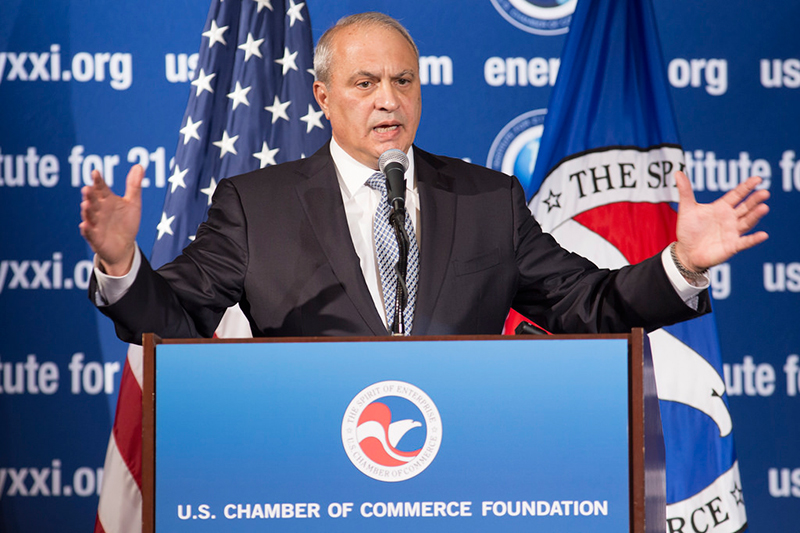
Being in the electricity industry for over 40 years, FirstEnergy president and CEO Anthony Alexander has seen many challenges, but he told an audience at the U.S. Chamber’s CEO Leadership Series:
[T]he challenges we now face from government interference in the electric business are far more intrusive and disruptive, and I believe far more significant to our industry’s future, and to your future. That’s because whether it impacts our traditional regulated business or our competitive operations, government policy is now aimed at stifling the growth and use of electricity – and picking winners and losers in the competitive marketplace.
“Electricity is under attack in our country – and this battle is being waged through largely untested policies…” – Alexander #CEOFirstEnergy
— Energy Institute (@Energy21) April 8, 2014
One of those intended losers is coal:
I believe state and federal policymakers are manipulating the supply and demand, and distorting markets for electricity, to further advance the “war on coal.” And, the convergence of government policies, laws and regulations aimed at coal use – both directly, through EPA rules, and indirectly, through subsidies, preferences and mandates – will lead to higher prices and less reliable service over the long term.
…
For example, as a result of the U.S. EPA’s mercury and air toxics standards, an estimated 376 coal-based units will close in 38 states over the next three to five years. That’s nearly 17 percent of our nation’s coal fleet’s capacity. And, there are additional EPA rules being considered that could have similar impacts on the fleet.
“Due to EPA regs, 376 coal-based units (17% of the nation’s fleet cap) will close in 38 states in 3 to 5 years.” #CEOFirstEnergy #USChamber
— FirstEnergy Corp. (@firstenergycorp) April 8, 2014
But what about natural gas? Alexander noted that while we’re benefiting from increased natural gas production, “substantial changes will be needed in the natural gas pipeline and storage infrastructure to make it match the just-in-time nature of the electric system.”
We saw that this past winter during the polar vortex:
Some generating units were off-line as natural gas was used to meet higher priorities – and the entire market was affected by a substantial increase in the price of natural gas. To put this price increase in perspective, it was the equivalent of paying about $85 per gallon of gasoline!
The regional grid was under severe stress during this weather event. And the lesson learned should be obvious: We need to maintain a diverse fleet – including real generating assets such as coal, nuclear and natural gas – to ensure reliable, affordable service over the long term.
What’s needed from Washington are policies that advance energy diversity, reliability, and affordability. Not policies that pick energy winners and losers.
“We must reaffirm this nation’s long-term energy policy in favor of diversity of supply, reliance on the market." #CEOFirstEnergy #USChamber
— FirstEnergy Corp. (@firstenergycorp) April 8, 2014

